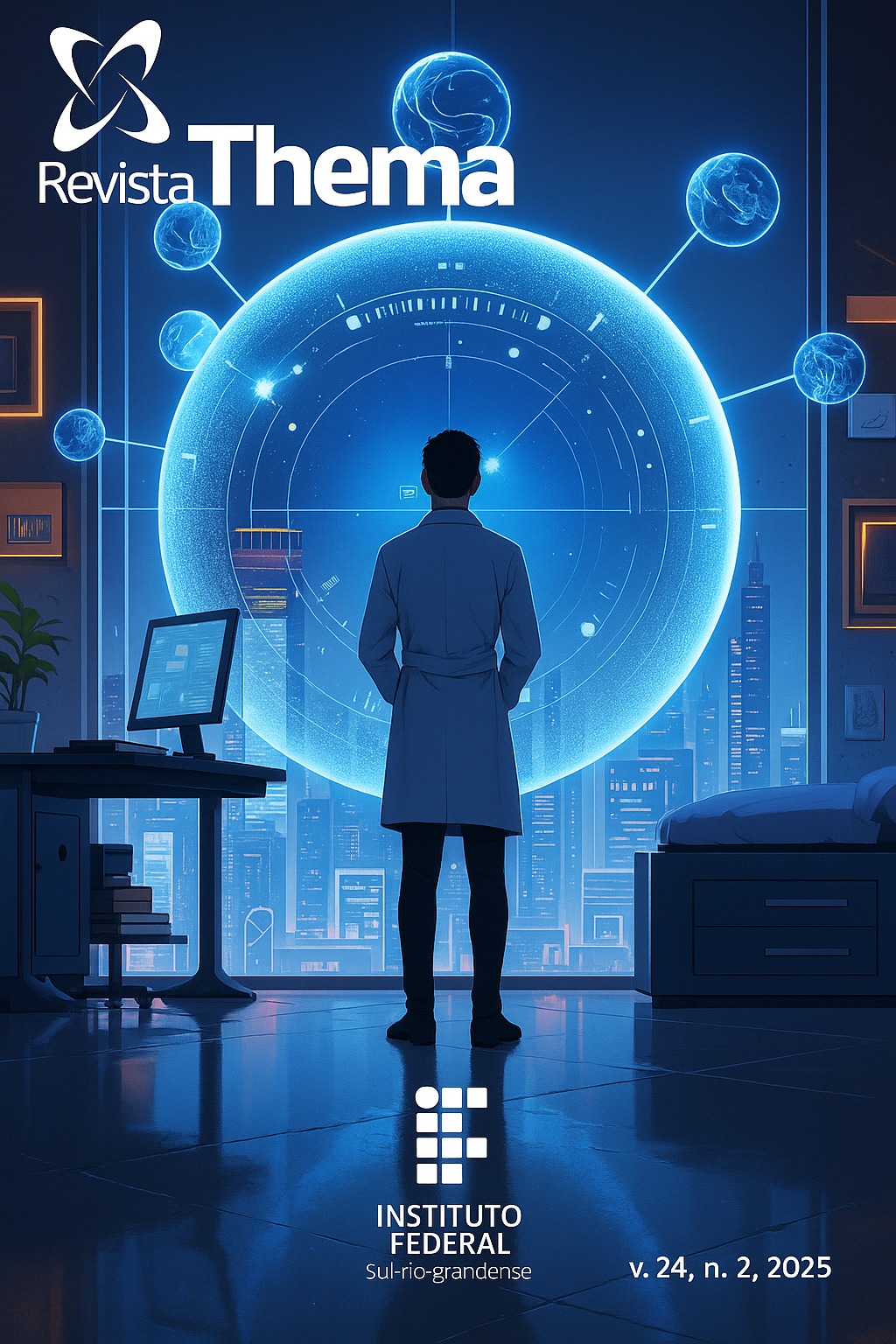Scientific Initiation
Interlocutions between University and Basic School
DOI:
https://doi.org/10.15536/revistathema.24.2025.2905Keywords:
Scientific Research, Scientific Events, University, SocietyAbstract
This paper analyses the Institutional Programs for Scientific Initiation Scholarships funded by the National Council for Scientific and Technological Development (CNPq). It discusses the funding of grants from the same Program, managed by the Dean of Research (PROPESQ) of the Federal University of Rio Grande do Sul (UFRGS) and the organization of two scientific events, the Scientific Initiation Hall (SIC) for undergraduate students and the UFRGS Youth Hall, which resembles a science fair, for students in basic education. These events are recognized by the academic and external community and provide opportunities for the exchange of ideas through the research carried out. The study, with a quantitative and qualitative approach, had theoretical support from authors such as Ana Maria Pessoa de Carvalho, Pedro Demo, Maria do Carmo Galiazzi, Julieta Calazans and Maria Nobre Damasceno to support the analysis, from the perspective of teaching through research and relevance of scientific initiation. It is concluded that UFRGS Youth Hall provides opportunities for the presentation of research carried out in schools, encourages the practice of research in the school environment and contributes to a closer dialogue between universities and schools.
Downloads
Downloads
Published
How to Cite
Issue
Section
License
O autor responsável pela submissão representa todos os autores do trabalho e, ao enviar o artigo para a revista, está garantindo que tem a permissão de todos para fazê-lo. Da mesma forma, assegura que o artigo não viola direitos autorais e que não há plágio no trabalho. A revista não se responsabiliza pelas opiniões emitidas.
A Revista Thema é de acesso aberto (Open Access), sem que haja a necessidade de pagamentos de taxas, seja para submissão ou processamento dos artigos. A revista adota a definição da Budapest Open Access Initiative (BOAI), ou seja, os usuários possuem o direito de ler, baixar, copiar, distribuir, imprimir, buscar e fazer links diretos para os textos completos dos artigos nela publicados.
Todos os artigos são publicados com a licença Creative Commons Atribuição-NãoComercial 4.0 Internacional. Os autores mantém os direitos autorais sobre suas produções, devendo ser contatados diretamente se houver interesse em uso comercial dos trabalhos.





